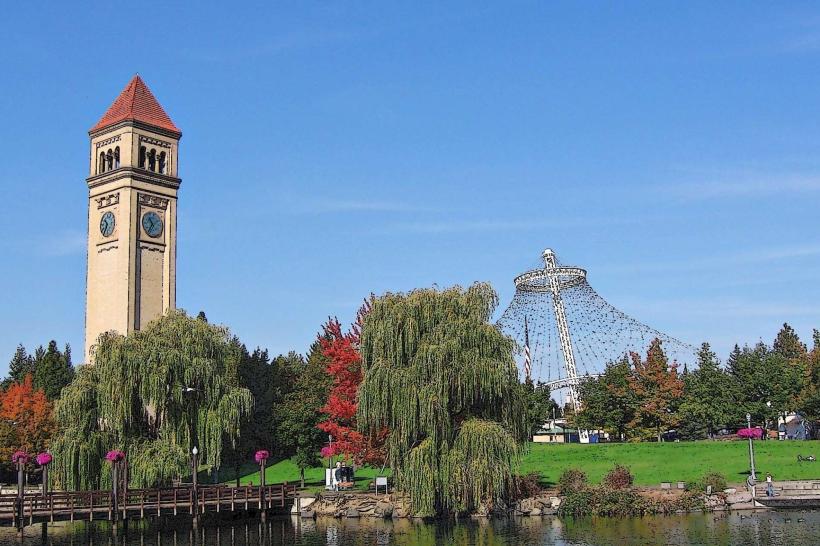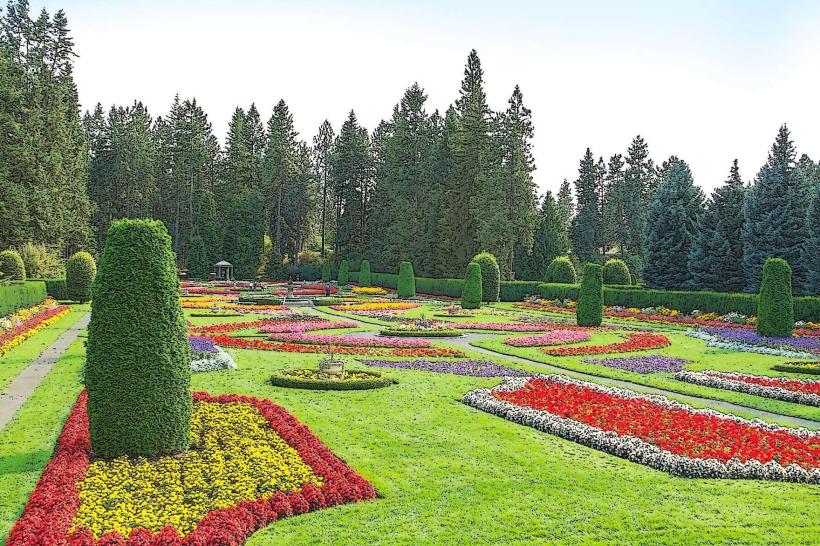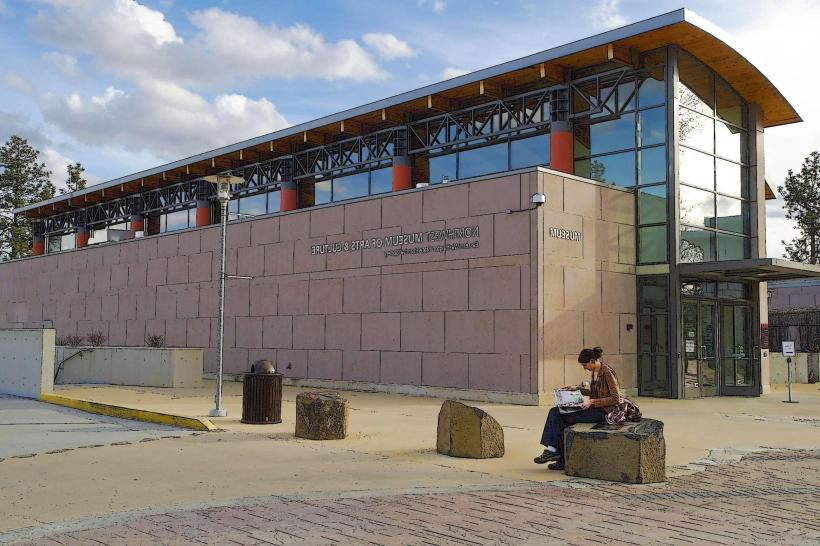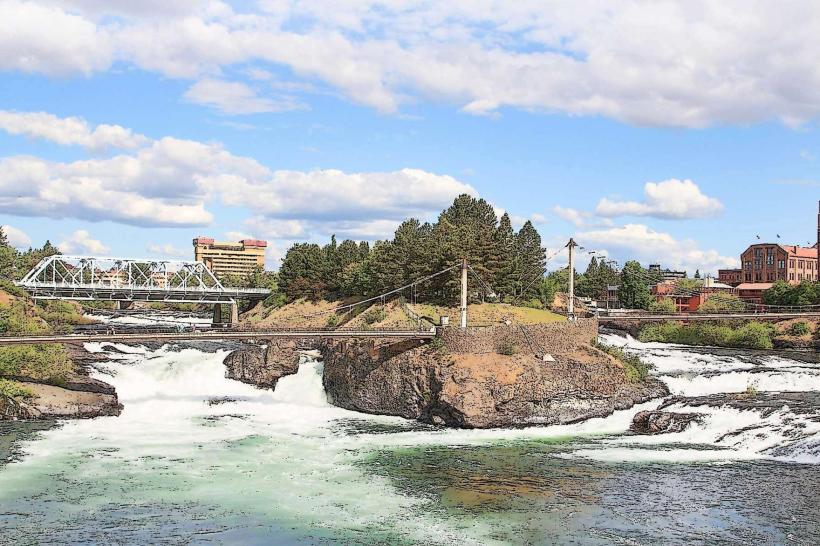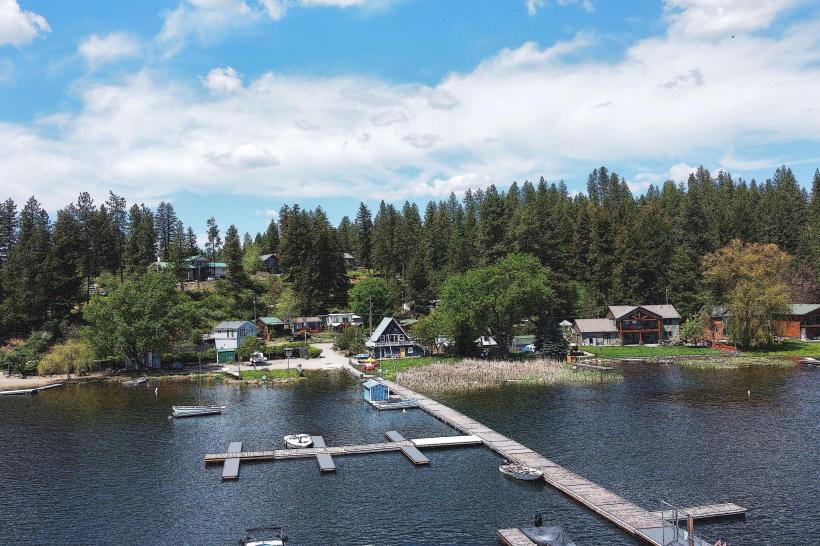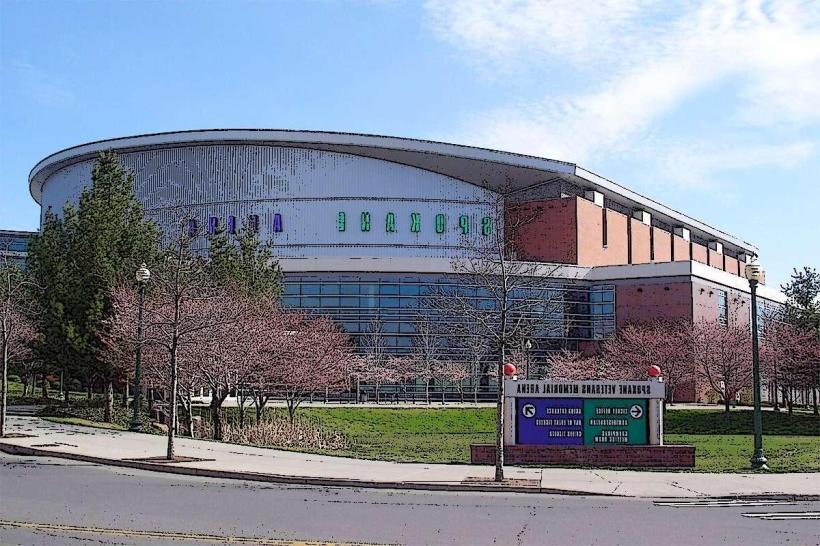Information
Landmark: Spokane ArenaCity: Spokane
Country: USA Washington
Continent: North America
Spokane Arena, Spokane, USA Washington, North America
Spokane Arena, officially known as the Spokane Veterans Memorial Arena, is a major multi-purpose indoor facility located in downtown Spokane, Washington. Since its opening in 1995, it has established itself as a central venue for a wide variety of events, ranging from sports competitions to concerts and cultural performances, serving as a key entertainment and community hub in the Inland Northwest region.
Historical Context and Development
The arena was developed in response to Spokane’s need for a modern, large-capacity venue capable of hosting professional sports teams, major concerts, and other large-scale events. It opened its doors on September 10, 1995, following a construction period that involved collaboration between prominent architects ALSC Architects and Ellerbe Becket. The total cost of construction was approximately $62.6 million at the time, reflecting a significant investment aimed at revitalizing Spokane’s downtown and boosting its regional profile.
Architecture and Design
The Spokane Arena’s design emphasizes versatility and capacity, with a focus on maximizing sightlines and audience engagement. The architecture is modern and functional, featuring expansive concourses and adaptable seating configurations that accommodate diverse event types. The exterior is characterized by a combination of steel, glass, and masonry materials that integrate the arena into Spokane’s urban fabric while providing an iconic, recognizable landmark.
Seating and Capacity
One of Spokane Arena’s greatest strengths is its flexible seating arrangement, which allows it to host events ranging from intimate theatrical performances to large-scale concerts and sports games. The arena’s seating capacities include:
Up to approximately 11,700 seats for basketball games
Around 9,900 seats for hockey games, home to the Spokane Chiefs of the Western Hockey League (WHL)
Concert configurations range from 5,950 seats in the smaller Star Theatre setup, ideal for theater-style events, up to nearly 11,660 seats for full-scale end-stage or center-stage concerts
Other configurations allow for up to 10,700 seats for arena football games and about 8,000 seats for smaller or partial setups
In addition to general seating, the arena features 16 luxury suites. These suites provide an upscale experience with amenities such as private restrooms, wet bars, refrigerators, and closed-circuit televisions, catering to corporate clients, VIPs, and guests seeking enhanced comfort and privacy.
Facilities and Amenities
The arena floor covers an expansive 32,000 square feet, providing ample space for ice rinks, basketball courts, concert stages, or exhibition areas, depending on the event. The concourse spans approximately 35,000 square feet and includes numerous concession stands offering food and beverage options, merchandise vendors, and lounges.
Backstage and operational facilities are well-equipped to handle large touring productions, with five truck docks that enable efficient loading and unloading for up to eight trucks simultaneously. This logistical capability ensures smooth transitions between events and supports high-profile shows.
Technologically, Spokane Arena is equipped with advanced audio-visual systems designed to enhance the spectator experience. These include a large 15-foot by 20-foot LED display suspended over the floor and a 350-degree LED ribbon board that runs around the arena’s interior, providing dynamic event information, advertising, and immersive visuals during performances.
Events and Programming
Spokane Arena’s event calendar is diverse, attracting a broad spectrum of audiences:
Sports: The arena is primarily known as the home of the Spokane Chiefs hockey team, a beloved local franchise in the Western Hockey League. It also regularly hosts NCAA basketball tournaments, NHL exhibition games, arena football matches, and various other sporting events including figure skating championships and wrestling.
Concerts and Entertainment: The arena attracts top-tier national and international artists across genres, ranging from pop and rock to country and classical music. Past performers have included major stars like Taylor Swift, Paul McCartney, and Shania Twain. The Star Theatre setup within the arena offers a more intimate environment suitable for Broadway productions, family shows, and comedy performances.
Community and Special Events: Beyond sports and concerts, Spokane Arena is a venue for conventions, graduations, trade shows, and cultural festivals, making it a versatile center for community engagement and regional celebrations.
Location and Accessibility
Strategically positioned in downtown Spokane, the arena benefits from proximity to restaurants, hotels, and public transportation options. The Spokane Transit Authority (STA) provides convenient bus routes servicing the area, and there is ample parking nearby, ensuring ease of access for visitors.
The arena’s downtown location also supports Spokane’s broader urban development and tourism goals by drawing visitors to the city center and stimulating economic activity.
Impact and Legacy
Since its inception, Spokane Arena has played a significant role in elevating Spokane’s cultural and entertainment offerings. It has helped establish the city as a key destination for major touring acts and sporting events within the Northwest. The arena also acts as a gathering place for the community, fostering local pride through support of the Spokane Chiefs and hosting important civic occasions.
Its blend of modern design, technological infrastructure, and flexible usage has allowed Spokane Arena to remain relevant and competitive among regional venues for nearly three decades.
Summary
Spokane Arena is a state-of-the-art indoor venue that combines architectural functionality with modern amenities to host a wide variety of events in Spokane, Washington. Its flexible seating, advanced technology, and well-planned facilities accommodate everything from high-energy sports and concerts to cultural shows and community events. As a landmark in Spokane’s downtown, it supports the city’s economic vitality and cultural life, serving both residents and visitors with diverse, high-quality entertainment experiences.

